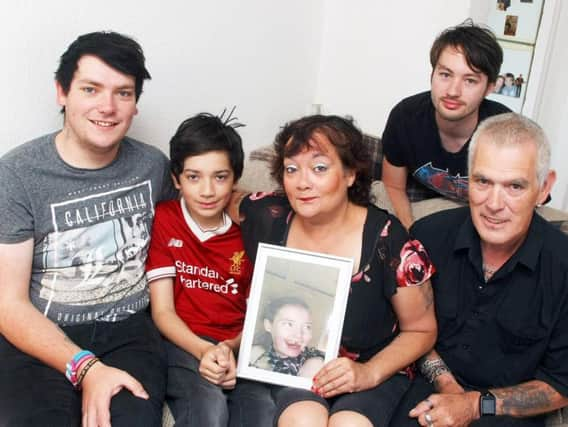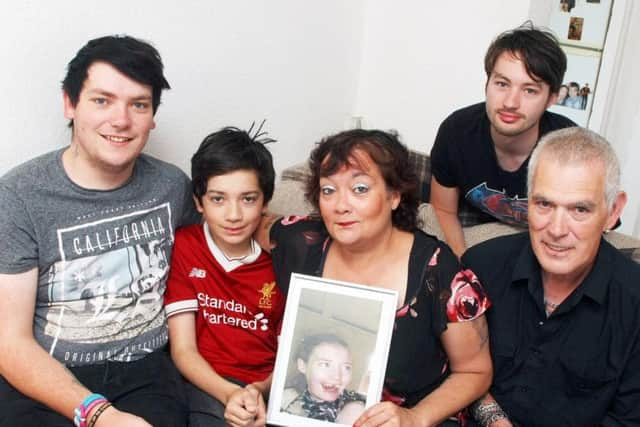Bereaved mother launches special needs ward petition


Kelly Colwell spent a week on a ward in Worthing Hospital before she died from pneumonia in the summer of 2016, surrounded by elderly people who were also in the last stages of their lives.
Her mother Fiona Presley described Kelly, who had a mental age of three, as ‘loving but loud’ and said of the other people in the ward: “They don’t want the noise.
Advertisement
Hide AdAdvertisement
Hide Ad"I didn’t feel guilty but it felt really awkward. I could say to her ‘shh’, but I didn’t want to be doing that in her last couple of weeks.”


Fiona, who recently moved from Shoreham to Lancing, believes a dedicated ward with ‘sensory areas’ and a more relaxed environment where patients could be free to express themselves would ‘really help’ other families in a similar situation.
“When you have a special needs relative, you want that time while they still have the energy to be themselves,” she said.
“Kelly was lethargic in the last days, but up until then she was still laughing and blowing kisses.”
Advertisement
Hide AdAdvertisement
Hide AdFiona, who previously fought a successful campaign to allow decorations on Kelly’s grave in Shoreham’s Mill Lane Cemetery, decided to launch her petition having now recovered from an aggressive form of breast cancer.
“Now that I’ve got my strength back, I wanted to do something for Kelly,” she said.
When Kelly was a toddler, her family was told she would not survive into her teens.
But despite having learning difficulties, epilepsy, suffering from four comas and breast cancer, Kelly lived to the age of 26 and was much-loved by her family, which includes Cody, 13; Sheldon, 23 and Luke, 26.
Advertisement
Hide AdAdvertisement
Hide AdFiona said: “She had limited vocabulary but she was one of the most caring people I know. She was very sentimental, she could tell if you were upset.
“She would love to be able to help other people.”
Maggie Davies, director of nursing at Western Sussex Hospitals NHS Foundation Trust, said: “We deeply regret that Kelly’s family were distressed by her sharing a bay with other
patients at such a difficult time for them.
“Under such circumstances, we do try to provide a side-room so families can have more privacy, but sadly this is not always possible.
“Patients are admitted to the appropriate ward for their health needs, where the care teams have the specialist expertise to provide the best care for their condition.
Advertisement
Hide AdAdvertisement
Hide Ad“When a patient has additional needs, we have a pool of specialist ‘in-reach’ nurses who provide extra support, both for the patient and their family.
“In this way, we help to ensure in an inclusive way that people with additional needs receive the same medical care as those without.”
A spokesperson for NHS England South East said: “Each individual hospital would make an assessment of which ward provides the most appropriate care for the individual patient.
"Often for patients with learning disabilities their priority at the time of admission to an acute hospital are their physical health problems and for them to be cared for in a general ward specialising in this care is the most appropriate.
Advertisement
Hide AdAdvertisement
Hide Ad"Any extra support required is provided by the hospital in the form of specialist nursing support.
"Staff work with their colleagues, patients and their families to provide the highest standard of care taking into account a patients’ needs along with those of other patients where a patient has challenging behaviour.”